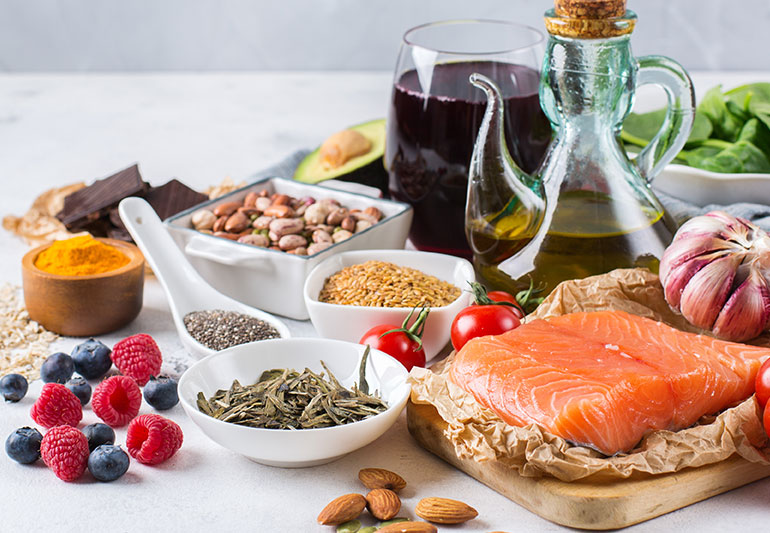Sleep is essential for overall health and well-being, yet many people struggle with getting enough restful sleep each night. While lifestyle factors like stress, screen time, and sleep environment play significant roles, diet also plays a crucial role in promoting healthy sleep patterns. In this article, we’ll explore a variety of foods that can help you get better quality sleep and wake up feeling refreshed and rejuvenated.
1. Cherries:
Cherries are one of the few natural food sources of melatonin, a hormone that regulates sleep-wake cycles. Consuming tart cherry juice or whole cherries in the evening may help increase melatonin levels in the body and promote deeper, more restful sleep.
2. Bananas:
Bananas are rich in potassium and magnesium, two minerals that have been linked to better sleep quality. Potassium helps relax muscles, while magnesium plays a role in regulating neurotransmitters that promote sleep and relaxation. Enjoy a banana as a bedtime snack or add sliced banana to oatmeal or yogurt for a nutritious and sleep-friendly treat.
3. Almonds:
Almonds are a good source of magnesium, which has been shown to improve sleep quality and duration. Additionally, almonds contain tryptophan, an amino acid that the body converts into serotonin and melatonin, both of which promote relaxation and sleep. Enjoy a handful of almonds as a bedtime snack or add almond butter to toast or smoothies for a nutritious and sleep-inducing treat.
4. Oats:
Oats are a complex carbohydrate that can help regulate blood sugar levels and promote stable energy levels throughout the night. Additionally, oats contain melatonin, which may help regulate sleep-wake cycles and improve overall sleep quality. Enjoy a bowl of oatmeal topped with sliced bananas and a drizzle of honey for a comforting and sleep-promoting breakfast or bedtime snack.
5. Turkey:
Turkey is rich in tryptophan, an amino acid that the body converts into serotonin and melatonin, both of which promote relaxation and sleep. Consuming turkey or turkey-based dishes in the evening may help promote feelings of calmness and induce sleepiness. Enjoy roasted turkey breast with vegetables for dinner or make a turkey sandwich for a satisfying and sleep-friendly meal.
6. Kiwi:
Kiwi is packed with vitamins, minerals, and antioxidants, including serotonin, which may help regulate sleep-wake cycles and improve sleep quality. Research suggests that consuming kiwi before bedtime may help increase sleep onset, duration, and efficiency. Enjoy a ripe kiwi as a bedtime snack or blend kiwi into a smoothie for a refreshing and sleep-inducing treat.
7. Dairy Products:
Dairy products like milk, yogurt, and cheese contain tryptophan, calcium, and magnesium, all of which contribute to better sleep quality. Calcium helps the brain produce melatonin, while magnesium helps relax muscles and promote relaxation. Enjoy a warm glass of milk before bedtime or have a small serving of yogurt with honey for a soothing and sleep-promoting snack.
8. Herbal Teas:
Herbal teas like chamomile, valerian root, and passionflower have been used for centuries to promote relaxation and improve sleep quality. These teas contain compounds that have mild sedative effects and may help calm the mind and induce feelings of relaxation. Enjoy a cup of herbal tea before bedtime as part of your nightly wind-down routine.
9. Leafy Greens:
Leafy greens like spinach, kale, and Swiss chard are rich in magnesium, which has been shown to improve sleep quality and duration. Magnesium helps relax muscles and promote relaxation, making it easier to fall asleep and stay asleep throughout the night. Incorporate leafy greens into your meals and snacks to reap their sleep-promoting benefits.
10. Whole Grains:
Whole grains like brown rice, quinoa, and barley are rich in complex carbohydrates that can help regulate blood sugar levels and promote stable energy levels throughout the night. Additionally, whole grains contain magnesium, which has been shown to improve sleep quality and duration. Enjoy whole grain dishes like quinoa salad or barley risotto for dinner to support better sleep.
Final Thoughts: Building Better Sleep with Food
Incorporating sleep-promoting foods into your diet can help support better sleep quality and duration, leading to improved overall health and well-being. By choosing nutrient-rich foods that contain sleep-supportive compounds like melatonin, tryptophan, magnesium, and calcium, you can create a bedtime routine that promotes relaxation and induces restful sleep. Remember to pair sleep-promoting foods with other healthy sleep habits, such as maintaining a consistent sleep schedule, creating a relaxing bedtime routine, and optimizing your sleep environment, for optimal sleep quality and restorative rest.

